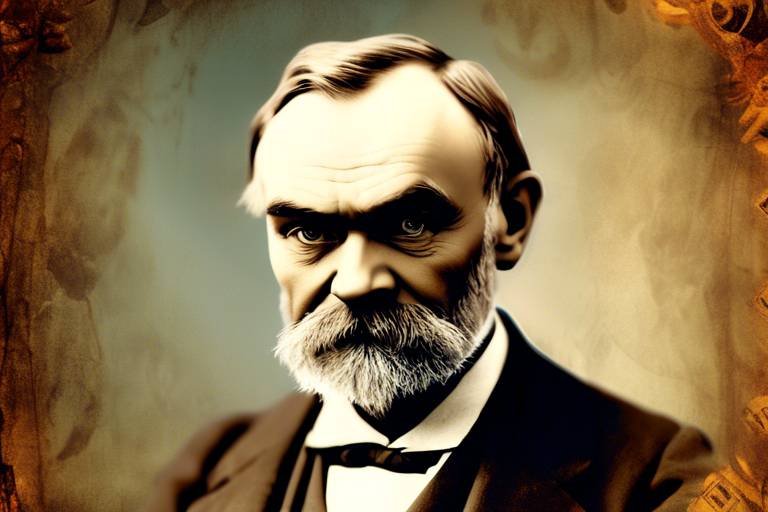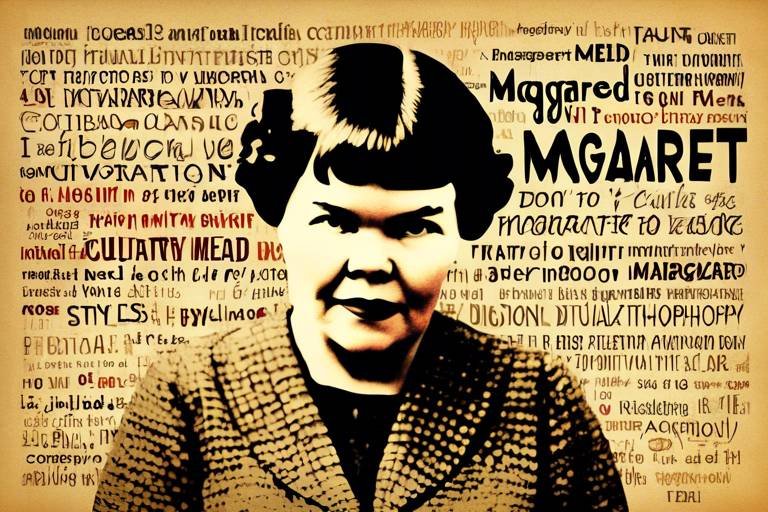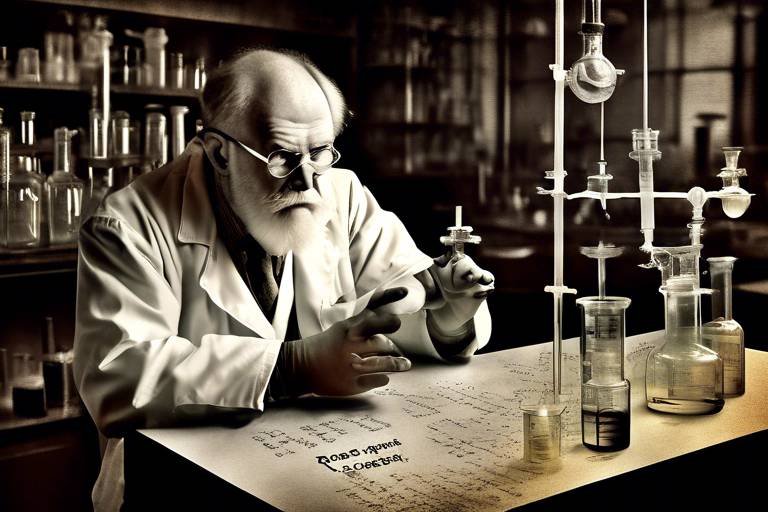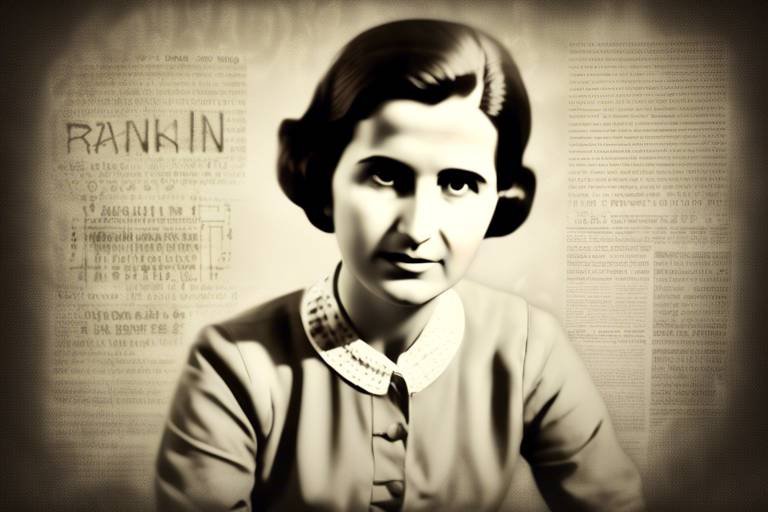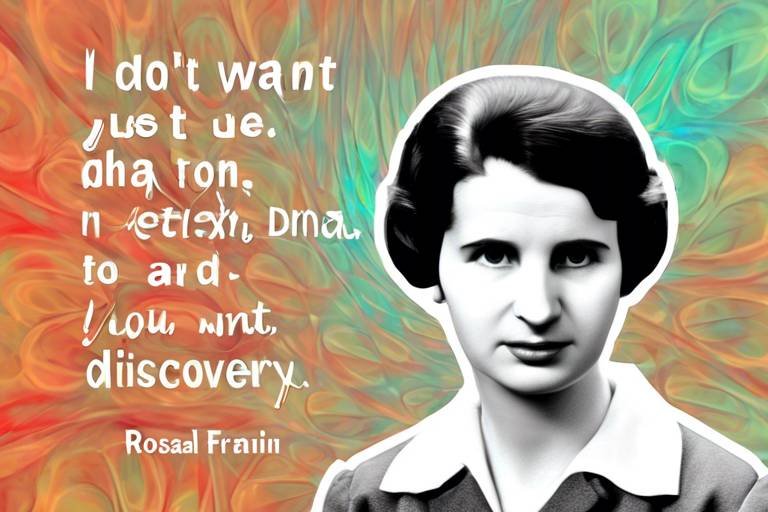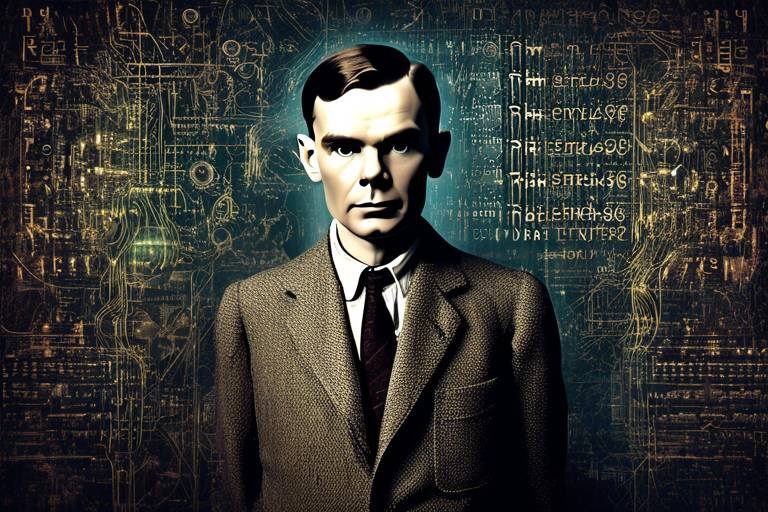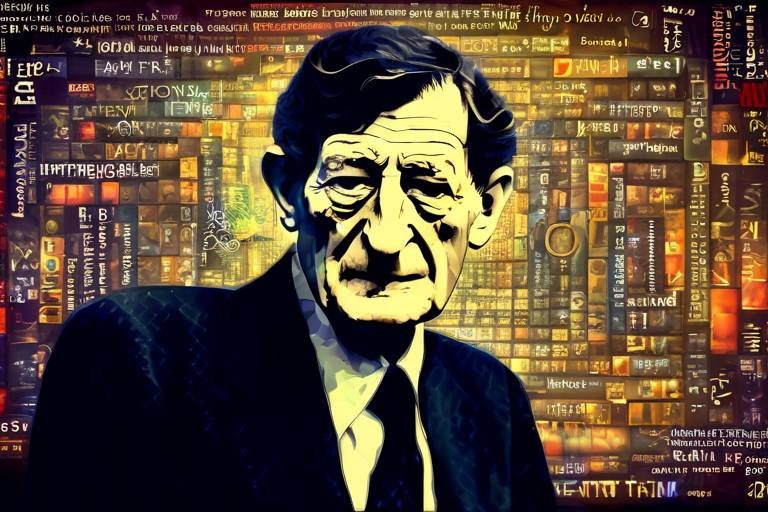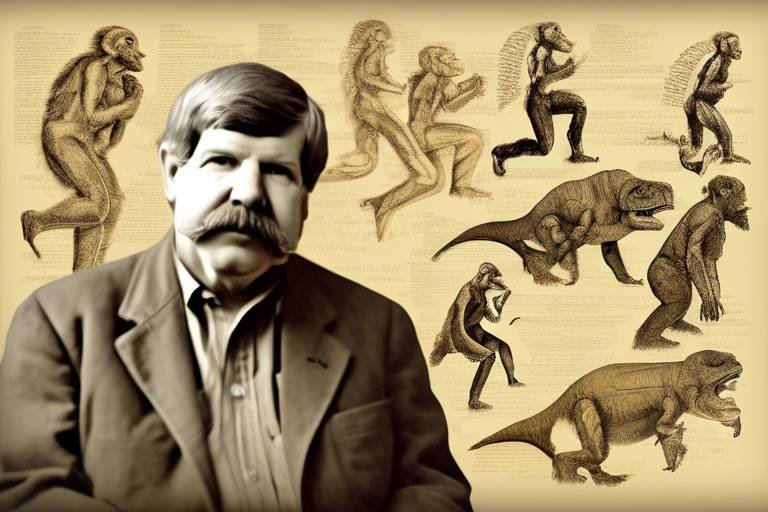The Work of Alfred Nobel and His Legacy
When we think of Alfred Nobel, many of us might picture a man surrounded by explosions and inventions, yet his legacy extends far beyond the realm of explosives. Nobel was a visionary, a man who understood the dual nature of his creations and sought to leave a mark on humanity that transcended the destructive power of his inventions. Born on October 21, 1833, in Stockholm, Sweden, he was a child of invention himself, raised in a family that embraced the spirit of innovation. His early years were filled with education and exploration, leading him to master several languages and delve into the sciences, particularly chemistry. But it was his invention of dynamite that would catapult him into the annals of history, igniting a firestorm of both advancement and ethical debate.
However, what truly sets Nobel apart is not just his invention but his commitment to humanity. After reading a premature obituary that labeled him the 'merchant of death' due to his explosive inventions, Nobel was struck by the idea of how he would be remembered. This prompted him to establish the Nobel Prizes, a series of awards that recognize those who contribute to the betterment of society. Each prize serves as a beacon of hope, shining a light on the remarkable achievements of individuals who strive to improve the world. Nobel's vision was clear: he wanted to foster a legacy that celebrated peace, knowledge, and the advancement of human society.
The impact of Nobel’s work is profound and multifaceted. His invention of dynamite revolutionized industries such as construction and mining, allowing for monumental projects that reshaped cities and economies. Yet, this same invention also raised critical questions about the morality of creating tools that could be used for destruction. Nobel grappled with these implications, which ultimately influenced his decision to allocate his fortune towards the establishment of the Nobel Prizes. The prizes not only reward scientific and literary achievements but also promote the pursuit of peace, encouraging individuals and organizations to work towards a better future.
Today, the Nobel Prizes stand as a testament to Nobel's enduring legacy. They highlight the importance of innovation and the human spirit's capacity to overcome challenges. Each year, the world watches as laureates are celebrated for their contributions to fields such as Physics, Chemistry, Medicine, Literature, and Peace. This annual ceremony serves not only to honor individual achievements but also to inspire future generations to continue the pursuit of excellence and humanitarian efforts.
In essence, Alfred Nobel was not merely an inventor; he was a philosopher of sorts, pondering the implications of his work on humanity. His legacy continues to influence the world, reminding us that with great power comes great responsibility. As we reflect on his contributions, we are encouraged to consider how our own actions can lead to a better tomorrow. Nobel's life story is a powerful reminder that we can shape our legacies through thoughtful choices and a commitment to the greater good.
- What motivated Alfred Nobel to create the Nobel Prizes?
Nobel was motivated by a desire to leave a positive legacy after realizing the destructive potential of his inventions. - How has the invention of dynamite impacted modern society?
Dynamite has significantly advanced construction and mining, leading to modern infrastructure but has also raised ethical concerns about its use in warfare. - What are the categories of the Nobel Prizes?
The Nobel Prizes are awarded in several categories: Peace, Literature, Physics, Chemistry, Medicine, and Economic Sciences. - Who are some notable Nobel Peace Prize winners?
Notable winners include Martin Luther King Jr., Malala Yousafzai, and Nelson Mandela, all recognized for their efforts in promoting peace and resolving conflicts.

Alfred Nobel: A Brief Biography
Alfred Nobel was born on October 21, 1833, in Stockholm, Sweden, into a family of engineers and inventors. His father, Immanuel Nobel, was a pioneer in the field of explosives, which would later play a crucial role in Alfred's life. Growing up in a household that valued innovation, Alfred was exposed to the world of science and technology from an early age. However, his early years were not without challenges; the family faced financial difficulties, leading to a brief period of hardship.
Nobel's education began in Sweden, but he later moved to Paris to study chemistry, where he immersed himself in the scientific community. His passion for invention was ignited during this time, as he sought to create something that would change the world. By the time he was in his twenties, he had already begun to experiment with nitroglycerin, a highly unstable explosive that would eventually lead to his most famous invention.
Despite his success as an inventor, Nobel was a complex individual. He was deeply affected by the moral implications of his work, particularly the destructive potential of explosives. This internal conflict would later influence his decision to establish the Nobel Prizes, reflecting his desire to leave a positive legacy. In his later years, he settled in Italy, where he continued to work on various inventions and wrote poetry, showcasing his diverse interests.
Nobel passed away on December 10, 1896, in San Remo, Italy, leaving behind a fortune that would fund the Nobel Prizes. His last will and testament expressed his wish to reward those who contribute to humanity, a vision that has had a lasting impact on the world. Today, Nobel is remembered not only for his inventions but also for his profound commitment to peace and progress, making him a pivotal figure in both science and philanthropy.

The Invention of Dynamite
Alfred Nobel's invention of dynamite in 1867 marked a pivotal moment in both engineering and the use of explosives. Before this groundbreaking creation, the world relied on less stable and more dangerous substances like black powder. Nobel's innovative approach combined nitroglycerin with an absorbent material, making it safer to handle and transport. This was not just a scientific achievement; it was a revolution that changed the landscape of construction and mining forever.
Imagine the challenges faced by workers in the 19th century. They struggled with the limitations of traditional explosives, which were often unpredictable and hazardous. Nobel's dynamite offered a solution that was not only more stable but also significantly more powerful. This allowed for the excavation of tunnels, the construction of roads, and the expansion of cities at a pace never seen before. The efficiency and effectiveness of dynamite opened up new possibilities for infrastructure development, making it a key player in the industrial revolution.
However, with great power comes great responsibility. The ethical implications of creating such a potent explosive cannot be overlooked. While dynamite facilitated progress, it also contributed to the devastation of wars and conflicts. Nobel himself was deeply aware of this duality. He once expressed his concern about the potential misuse of his invention, famously stating that he wanted to leave a legacy that would benefit humanity rather than destroy it.
The impact of dynamite extended beyond construction; it also played a significant role in mining. The ability to blast through rock efficiently transformed the mining industry, allowing for the extraction of minerals and resources that were previously inaccessible. This not only fueled economic growth but also changed the way societies interacted with their natural resources.
In the years following its invention, dynamite became a staple in various industries, leading to a surge in technological advancements. The table below illustrates some of the key applications of dynamite:
| Application | Impact |
|---|---|
| Construction | Enabled faster and more efficient building of infrastructure. |
| Mining | Revolutionized mineral extraction, increasing productivity. |
| Quarrying | Facilitated the extraction of stone for various uses. |
| Demolition | Allowed for controlled demolitions of old structures. |
Despite its benefits, the legacy of dynamite is complex. Nobel's invention is a reminder of the fine line between innovation and destruction. In the end, it was this very conflict that inspired him to establish the Nobel Prizes, aiming to encourage advancements that would uplift humanity rather than harm it. His awareness of the consequences of his inventions led him to seek a way to contribute positively to the world, ensuring that his legacy would not be solely defined by the explosive power of dynamite.
As we reflect on the invention of dynamite, we must consider both its transformative impact on society and the ethical responsibilities that come with such powerful tools. The story of dynamite is not just about an explosive; it is about the choices we make and the legacies we leave behind.

The Nobel Prizes: Origins and Purpose
Alfred Nobel, the man behind the Nobel Prizes, had a vision that transcended his lifetime. Born into a world rife with conflict and scientific discovery, he wanted to leave a legacy that celebrated the **remarkable achievements** of humanity. The inception of the Nobel Prizes came about after a rather surprising event: the publication of an obituary mistakenly attributing Nobel’s death to his invention of dynamite, labeling him as the "merchant of death." This prompted Nobel to reconsider how he wanted to be remembered. Instead of being known for destruction, he envisioned a future where his contributions could foster **peace** and **progress**.
In his will, written in 1895, Nobel outlined the establishment of the prizes, which were to be awarded annually to individuals or organizations that made significant contributions in six categories: Peace, Literature, Physics, Chemistry, Medicine, and Economic Sciences. The purpose was clear: to recognize and reward those who have dedicated their lives to **humanitarian efforts** and **scientific advancements**. Nobel believed that by highlighting these achievements, he could inspire others to pursue paths that would lead to the betterment of society.
The Nobel Prizes are awarded based on the recommendations of various committees and organizations, which evaluate the nominees' contributions in their respective fields. The process is rigorous, ensuring that only the most deserving recipients are honored. Interestingly, the Peace Prize is unique in that it is awarded in Oslo, Norway, while the other prizes are presented in Stockholm, Sweden. This distinction underscores the importance of peace in Nobel's vision, as he sought to promote international cooperation and conflict resolution.
To put it simply, the Nobel Prizes serve a dual purpose: they not only recognize outstanding achievements but also aim to inspire future generations. By celebrating those who have made a difference, Nobel hoped to encourage a culture of **innovation** and **compassion**. The prizes have since evolved into one of the most prestigious accolades in the world, symbolizing the pinnacle of success in various fields. They remind us that progress is possible, even in a world fraught with challenges.
In conclusion, the origins of the Nobel Prizes are rooted in a profound desire to **celebrate human achievement** while promoting peace and understanding. Nobel's legacy continues to influence and inspire, proving that one person's vision can indeed change the world.

Categories of the Nobel Prizes
The Nobel Prizes are not just awards; they are a celebration of human achievement in various fields that have significantly advanced our understanding and betterment of the world. Established by Alfred Nobel's will, these prestigious accolades cover six main categories, each representing a unique aspect of human endeavor. The categories are: Peace, Literature, Physics, Chemistry, Physiology or Medicine, and Economic Sciences. Each category has its own distinct purpose and criteria for recognition, reflecting Nobel's diverse interests and his desire to reward those who contribute to the greater good.
In the realm of Peace, the Nobel Prize serves as a beacon of hope, honoring individuals and organizations that strive to resolve conflicts and promote harmony. Think of it as a spotlight on those who dare to dream of a world without war. Notable laureates include figures like Martin Luther King Jr. and Malala Yousafzai, who have made profound impacts on society through their relentless pursuit of peace.
Moving to Literature, this prize acknowledges authors whose works resonate with the human experience, often touching on themes of struggle, love, and the quest for truth. It’s like a literary hug, embracing those who have the power to inspire through words. From Gabriel Garcia Marquez to Toni Morrison, the award has highlighted a myriad of voices that enrich our cultural tapestry.
In the sciences, the Physics and Chemistry prizes celebrate groundbreaking discoveries that expand our understanding of the universe. These awards are akin to the fireworks of knowledge, illuminating the path for future generations of scientists. Winners like Marie Curie and Albert Einstein have forever changed the way we perceive the physical world, inspiring countless others to explore the mysteries of science.
When it comes to Physiology or Medicine, the Nobel Prize shines a light on those who have made significant advancements in health and well-being. This category is a reminder of the relentless pursuit of knowledge that can save lives and improve the quality of living for people around the globe. Think of it as a medical advancement trophy, celebrating innovations that have transformed healthcare.
Lastly, the Economic Sciences prize, established later than the others, recognizes contributions that enhance our understanding of economic processes and their impact on society. It’s a nod to those who help us navigate the complexities of wealth, resources, and human behavior, ultimately guiding us toward better economic policies and practices.
To summarize, the Nobel Prizes encompass a wide array of human achievement, each category representing a unique facet of our collective progress. They remind us that while the world is filled with challenges, there are also countless individuals dedicated to making a positive impact. Below is a table that summarizes the categories and their significance:
| Category | Significance |
|---|---|
| Peace | Honors efforts to promote harmony and resolve conflicts. |
| Literature | Celebrates authors who enrich the human experience through their works. |
| Physics | Acknowledges groundbreaking discoveries that expand our understanding of the universe. |
| Chemistry | Recognizes advancements that enhance our knowledge of chemical processes. |
| Physiology or Medicine | Honors significant advancements in health and medicine. |
| Economic Sciences | Recognizes contributions to the understanding of economic processes. |
In conclusion, the categories of the Nobel Prizes not only honor individual accomplishments but also serve as a source of inspiration for future generations. They remind us of the potential for greatness that exists within each of us and the impact we can have on the world around us.
- What are the Nobel Prizes? The Nobel Prizes are prestigious international awards given annually in several categories to recognize outstanding contributions to humanity.
- Who was Alfred Nobel? Alfred Nobel was a Swedish inventor, engineer, and philanthropist best known for inventing dynamite and establishing the Nobel Prizes in his will.
- How are Nobel Prize winners selected? Winners are chosen by various committees and organizations based on their contributions to their respective fields.
- What is the significance of the Peace Prize? The Peace Prize honors individuals or organizations that have made significant efforts to promote peace and resolve conflicts.

The Nobel Prize in Peace
The Nobel Prize in Peace is one of the most prestigious awards in the world, recognizing individuals and organizations that have made significant contributions to the promotion of peace. Established by Alfred Nobel's will in 1895, this award reflects his desire to honor those who work tirelessly to resolve conflicts and foster harmony among nations. But what does it truly mean to receive this honor? And how has it shaped the landscape of global peace efforts?
Over the years, the Peace Prize has been awarded to a myriad of laureates, each with their own unique stories and impacts. From political leaders like Nelson Mandela to humanitarian organizations like the International Committee of the Red Cross, the recipients embody a diverse range of approaches to achieving peace. For instance, Nobel's vision was not merely to reward those who ended wars but to celebrate those who sought to prevent conflict through dialogue, diplomacy, and understanding.
One of the most remarkable aspects of the Peace Prize is its ability to shine a spotlight on pressing global issues. When a laureate is announced, the world takes notice. This can lead to increased awareness and support for their causes. For example, when Malala Yousafzai received the award in 2014 for her advocacy of girls' education, it sparked a global movement highlighting the importance of education in achieving lasting peace. The award not only recognized her courage but also emphasized the critical link between education and societal stability.
However, the Nobel Peace Prize is not without its controversies. Some critics argue that the selection process is often politicized, with certain nominees receiving the award based on their popularity rather than their actual contributions to peace. For instance, the decision to award the prize to Barack Obama in 2009 was met with skepticism, as many believed he had not yet accomplished significant achievements in the realm of peace at that time. Such debates raise important questions about the criteria for recognition and the broader implications of awarding peace prizes.
To better understand the impact of the Peace Prize, let’s take a look at some notable laureates and their contributions:
| Year | Laureate | Contribution |
|---|---|---|
| 1984 | Desmond Tutu | Advocacy against apartheid in South Africa |
| 1991 | Aung San Suu Kyi | Non-violent struggle for democracy in Myanmar |
| 2003 | Shirin Ebadi | Human rights activism in Iran |
| 2016 | Juan Manuel Santos | Peace efforts to end the Colombian Civil War |
As we reflect on the legacy of the Nobel Peace Prize, it's essential to recognize its role in inspiring future generations. Each award ceremony serves as a reminder that peace is not merely the absence of conflict but a proactive endeavor requiring dedication and courage. The stories of the laureates encourage individuals to take action in their communities, fostering a culture of peace and understanding.
In conclusion, the Nobel Prize in Peace remains a beacon of hope in a world often overshadowed by strife. It not only honors those who have made significant strides toward peace but also ignites a global conversation about the importance of collaboration and empathy in overcoming our shared challenges. As we continue to navigate an increasingly complex world, the lessons from the Peace Prize laureates serve as a guiding light, reminding us that every effort counts in the pursuit of a more peaceful future.
- What is the Nobel Prize in Peace? It is an award given to individuals or organizations who have made significant contributions to peace efforts.
- Who decides the Nobel Peace Prize winners? The Nobel Committee, appointed by the Norwegian Parliament, is responsible for selecting the laureates.
- Can anyone be nominated for the Nobel Peace Prize? Yes, nominations can be made by a variety of individuals, including previous laureates, members of national governments, and university professors in relevant fields.
- What are some criticisms of the Nobel Peace Prize? Critics often point to the politicization of the selection process and the choice of certain laureates who may not have made significant contributions to peace.

Nobel's Influence on Science and Innovation
Alfred Nobel's impact on the world of science and innovation is nothing short of revolutionary. When we think of Nobel, the first thing that often comes to mind is the prestigious Nobel Prizes. However, his influence extends far beyond the awards themselves. Nobel was not just a scientist and inventor; he was a visionary who understood the profound implications of scientific advancement on society. His life and work serve as a beacon for aspiring scientists and innovators everywhere.
One of the most significant ways Nobel has influenced science is through his establishment of the Nobel Prizes, which have become synonymous with excellence in various fields. These awards not only honor outstanding contributions but also inspire future generations to push the boundaries of knowledge and creativity. Imagine being a young scientist, working tirelessly in a lab, and then seeing a fellow researcher receive a Nobel Prize for their groundbreaking work. It’s a powerful motivator! The recognition that comes with the Nobel Prize elevates the entire field, encouraging collaboration, innovation, and a relentless pursuit of progress.
Moreover, Nobel's foresight in recognizing the importance of various scientific disciplines has led to a broad spectrum of advancements. The Nobel Prizes are awarded in categories such as Physics, Chemistry, Medicine, and Economic Sciences. Each category represents a different facet of human achievement, and by acknowledging these diverse fields, Nobel has fostered an environment where interdisciplinary collaboration thrives. For instance, breakthroughs in medical science often rely on principles from chemistry and physics, demonstrating how interconnected our understanding of the universe truly is.
Another aspect of Nobel's influence is his commitment to peace and humanitarian efforts. The Nobel Peace Prize, in particular, highlights the importance of using scientific advancements for the betterment of humanity. By rewarding individuals and organizations that promote peace and resolve conflicts, Nobel has emphasized that science and innovation should serve a higher purpose. This has encouraged scientists to consider the ethical implications of their work, leading to a more responsible approach to research and development.
In terms of innovation, Nobel's legacy can be seen in the way modern scientists approach their work. The spirit of inquiry and the pursuit of knowledge that Nobel embodied is a driving force in today's research labs and universities. Many scientists view their work not just as a job, but as a calling to contribute positively to society. This perspective is crucial in an age where scientific advancements can have both positive and negative consequences. Nobel's influence reminds us that innovation should be guided by ethical considerations and a commitment to improving the human condition.
To summarize, Alfred Nobel's legacy is a testament to the profound impact one individual can have on science and innovation. His creation of the Nobel Prizes has not only recognized exceptional achievements but has also inspired countless individuals to strive for greatness. The interdisciplinary nature of the awards fosters collaboration, while the emphasis on peace and humanitarian efforts encourages scientists to use their knowledge for the greater good. Nobel's vision continues to resonate today, motivating new generations of innovators to pursue excellence with a sense of responsibility and purpose.
- What are the Nobel Prizes? The Nobel Prizes are prestigious international awards given annually in several categories, including Peace, Literature, Physics, Chemistry, Medicine, and Economic Sciences, honoring outstanding contributions to humanity.
- How did Alfred Nobel influence modern science? Nobel's establishment of the Nobel Prizes has inspired generations of scientists to strive for excellence and consider the ethical implications of their work, fostering a culture of collaboration and innovation.
- What is the significance of the Nobel Peace Prize? The Nobel Peace Prize highlights the importance of using scientific advancements and knowledge for humanitarian purposes, recognizing those who promote peace and resolve conflicts around the world.

Criticism and Controversies
Despite the monumental impact of the Nobel Prizes, they have not been free from criticism and controversy. One of the most frequently discussed issues is the selection process for the laureates. Critics argue that the process is often shrouded in secrecy, leading to questions about transparency and fairness. Many believe that the committees responsible for selecting winners can be influenced by political or social biases, which raises concerns about the integrity of the awards.
Moreover, certain laureates have sparked heated debates. For instance, the awarding of the Peace Prize to individuals or organizations with controversial backgrounds can lead to public outcry. A notable example is the 1973 Peace Prize awarded to Henry Kissinger and Le Duc Tho for their roles in the Vietnam War negotiations. This decision was met with backlash, as many felt it contradicted the very essence of promoting peace.
Another point of contention revolves around the categories of the Nobel Prizes. While the original prizes were established for specific fields, the addition of the Economic Sciences category in 1968 has raised eyebrows. Some argue that economics, being a social science, should not be included in the same league as the more empirical sciences like Physics or Chemistry. This has led to debates about what constitutes a 'Nobel-worthy' achievement and whether the criteria for selection should be revisited.
Additionally, the Nobel Prizes have faced criticism for their gender imbalance. Historically, the majority of laureates have been men, leading to accusations of systemic bias against women in various fields. For example, until 2020, only 18 women had been awarded the Nobel Prize in Physics, compared to over 200 men. This disparity highlights a broader issue within the scientific community and calls for a reevaluation of how recognition is awarded.
Furthermore, the Nobel Prize has been criticized for its focus on individual achievement, often overlooking collaborative efforts that are essential in modern science and humanitarian work. Many believe that the emphasis on individual laureates can diminish the contributions of teams and communities that work tirelessly behind the scenes. This raises the question: should the Nobel Prize evolve to reflect the collaborative nature of contemporary achievements?
In summary, while the Nobel Prizes symbolize excellence and significant contributions to humanity, they are not without their flaws. The criticisms surrounding the selection process, the controversies over certain laureates, gender imbalance, and the focus on individual achievement call for ongoing dialogue and potential reform. Addressing these issues is crucial for maintaining the relevance and integrity of the Nobel legacy as we move forward.
- What are the main criticisms of the Nobel Prize selection process?
Critics argue that the selection process lacks transparency and can be influenced by political biases. - Why was Henry Kissinger awarded the Nobel Peace Prize?
He was awarded for his role in negotiating peace during the Vietnam War, a decision that has sparked significant controversy. - How has the Nobel Prize addressed gender imbalance?
There is growing awareness and criticism regarding the lack of female laureates, prompting discussions on how to improve representation. - Should the Nobel Prize include more collaborative achievements?
Many believe that the prize should evolve to better reflect the team-oriented nature of modern scientific and humanitarian work.

The Lasting Legacy of Alfred Nobel
Alfred Nobel's legacy is a fascinating tapestry woven from the threads of invention, philanthropy, and a profound desire to contribute positively to humanity. When one thinks of Nobel, the first thing that often comes to mind is the prestigious Nobel Prize, awarded annually to individuals and organizations that have made significant contributions in various fields. But Nobel's influence extends far beyond the awards; it reaches into the very heart of scientific and social progress. His vision was not merely to create a powerful explosive but to challenge the world to use such power responsibly and for the greater good.
Nobel's will, which established the Nobel Prizes, was a reflection of his desire to leave a positive mark on the world. The prizes serve as a beacon of hope and recognition, illuminating the paths of those who dare to dream and innovate. They encourage researchers, writers, and peacekeepers to strive for excellence and to push the boundaries of what is possible. Each year, the world watches in anticipation as laureates are announced, celebrating their achievements and inspiring future generations.
Moreover, Nobel's legacy is also palpable in the realm of scientific research. His contributions to chemistry and engineering have laid the groundwork for countless advancements. The dynamite he invented revolutionized industries such as construction and mining, facilitating the building of infrastructure that supports modern society. However, this also brings forth the ethical dilemma associated with such powerful inventions. Nobel's later life was marked by a growing concern over the destructive potential of his creations, leading him to advocate for peace and responsible use of technology.
To put it simply, Nobel's legacy can be summarized in a few key areas:
- Philanthropy: His commitment to giving back through the Nobel Prizes has created a culture of recognition for those who strive to make the world a better place.
- Scientific Innovation: His inventions have opened doors to new possibilities, but they also serve as a reminder of the responsibility that comes with such power.
- Peace Advocacy: Nobel's later years were dedicated to promoting peace, demonstrating his belief in the power of collaboration over conflict.
In essence, Alfred Nobel's legacy is not just about the accolades awarded in his name; it is about the inspiration he instilled in countless individuals. His life story is a powerful reminder that one person can indeed make a significant difference. Today, as we navigate the complexities of our world, Nobel's call for peace and innovation resonates more than ever. His legacy encourages us to reflect on our own contributions and to consider how we can use our talents and resources to foster progress and understanding among all people.
In conclusion, the lasting legacy of Alfred Nobel is a multifaceted one, encompassing the realms of science, peace, and philanthropy. It challenges us to think critically about our own impact on the world and inspires us to pursue excellence in our endeavors. As we celebrate the Nobel Prizes each year, we also honor the spirit of Alfred Nobel—a spirit that continues to inspire and uplift humanity.
1. What motivated Alfred Nobel to establish the Nobel Prizes?
Nobel was motivated by a desire to leave a positive legacy after reading a premature obituary that labeled him the "merchant of death" due to his invention of dynamite. He wanted to be remembered for his contributions to humanity rather than for his destructive inventions.
2. How are Nobel Prize winners selected?
Nobel Prize winners are selected by various committees and organizations, depending on the category. The selection process involves nominations from qualified individuals and thorough evaluations of the nominees' contributions and achievements.
3. What are the different categories of the Nobel Prizes?
The Nobel Prizes are awarded in several categories, including Peace, Literature, Physics, Chemistry, Medicine, and Economic Sciences, each recognizing exceptional contributions in those fields.
4. Has Alfred Nobel's legacy faced any criticism?
Yes, there has been criticism regarding the selection processes for the Nobel Prizes, as well as debates about the implications of awarding certain individuals or organizations, which can sometimes overshadow the original intentions behind the prizes.
Frequently Asked Questions
- Who was Alfred Nobel?
Alfred Nobel was a Swedish inventor, engineer, and philanthropist, best known for inventing dynamite and for establishing the Nobel Prizes. Born on October 21, 1833, his life was marked by a passion for science and a desire to contribute positively to humanity.
- What did Alfred Nobel invent?
Nobel is most famously known for inventing dynamite in 1867, which revolutionized construction and mining. He developed this safer explosive to help with excavation and demolition, though it also raised ethical questions about its use in warfare.
- Why did Alfred Nobel create the Nobel Prizes?
Nobel established the Nobel Prizes in his will as a means to recognize and reward individuals and organizations that have made outstanding contributions to humanity in various fields, including peace, literature, and sciences. He wanted to leave a legacy that celebrated human achievement and progress.
- What categories are included in the Nobel Prizes?
The Nobel Prizes are awarded in six categories: Peace, Literature, Physics, Chemistry, Medicine, and Economic Sciences. Each category honors remarkable achievements that have significantly impacted society and advanced knowledge.
- Who are some notable Nobel Peace Prize winners?
Notable laureates of the Nobel Peace Prize include Martin Luther King Jr., Mother Teresa, Nelson Mandela, and Malala Yousafzai. These individuals have made significant strides in promoting peace and resolving conflicts globally.
- How has Alfred Nobel's work influenced modern science?
Nobel's legacy continues to inspire scientists and innovators today. His commitment to excellence and the pursuit of knowledge motivates new generations to push boundaries and contribute positively to various fields of research and development.
- What controversies surround the Nobel Prizes?
There have been criticisms regarding the selection process for Nobel laureates, including debates over bias, political influences, and the omission of deserving candidates. These controversies highlight the complexities involved in recognizing achievements in a diverse and often contentious global landscape.
- What is the lasting impact of Alfred Nobel's legacy?
Nobel's vision and philanthropic efforts have had a profound impact on society, shaping modern initiatives aimed at progress, peace, and innovation. His legacy encourages ongoing dialogue and action toward a better world.

